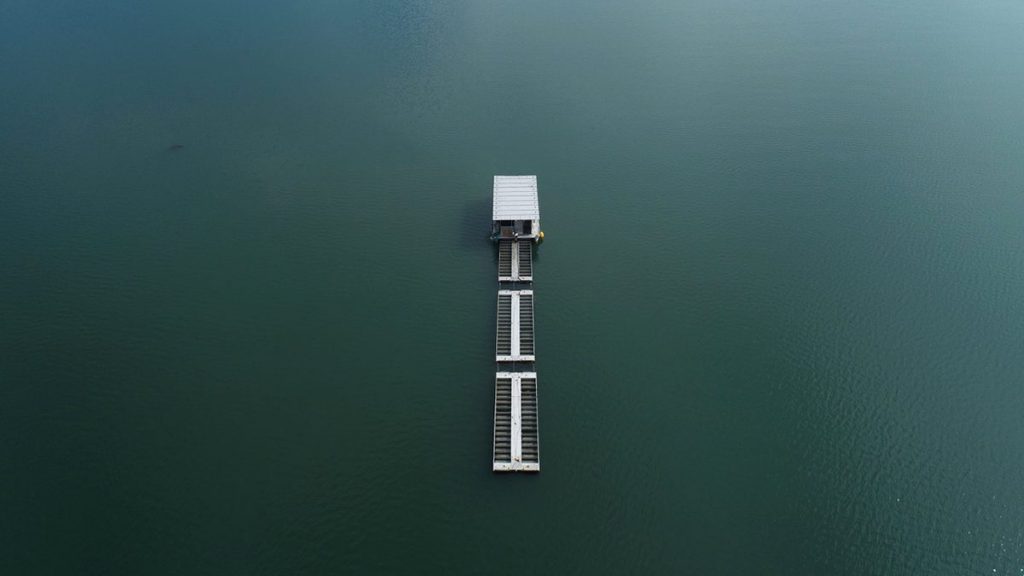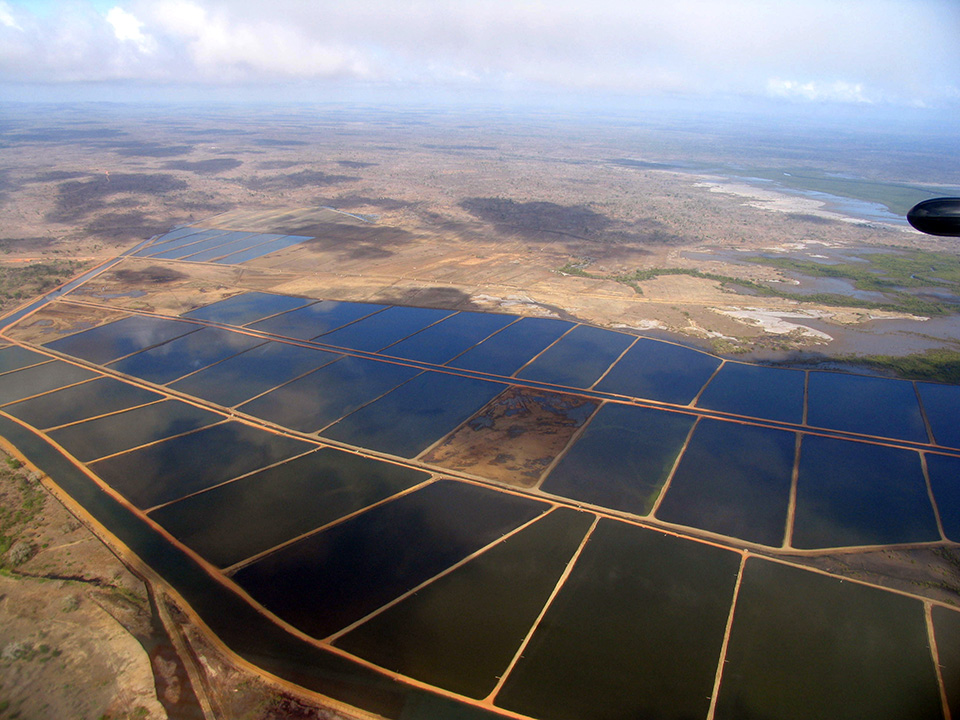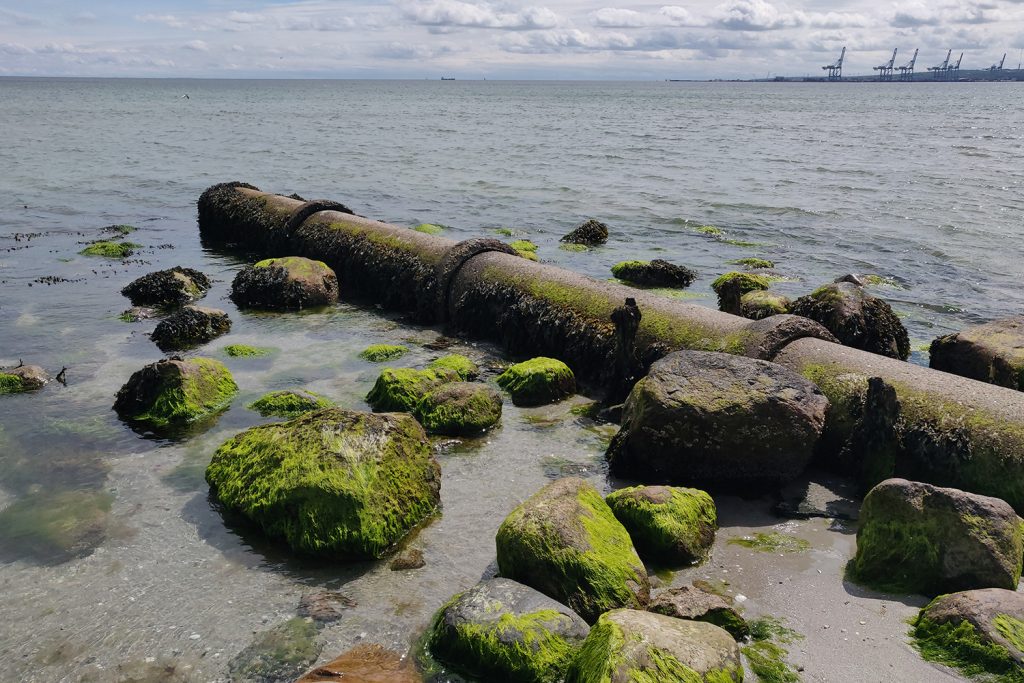Independent review of carbon removal technology to increase ‘transparency and verifiability’

Running Tide, a Maine-based global ocean health company, is teaming up with Deloitte to conduct an independent review of its carbon removal technology – a step towards the generation of high-quality carbon removal credits.
The company is testing a system to distribute small carbon buoys made from fast carbon-rich forestry residue and limestone into the open ocean, hundreds of miles offshore. As the carbon buoys float, the limestone slowly dissolves, restoring ocean alkalinity, combatting ocean acidification and moving fast carbon to slow. The buoys that are seeded with algae fix fast carbon through photosynthesis directly from the upper ocean’s fast carbon cycle. After less than three months, the buoy and algae lose buoyancy and sink rapidly. The carbon embodied in the buoy and algae will either be buried in ocean sediments or consumed by deep-sea marine life.
“Transparency and independent validation and verification are critical to the advancement and eventual large-scale deployment of carbon removal technologies,” wrote the company in a press release. “In Running Tide’s case, this includes a review of processes for quantifying net carbon removed, assessing its permanence and additionality, the application of the best available science and a comprehensive consideration of environmental and ecological impacts associated with deploying Running Tide’s carbon removal systems.”
The review will be carried out by carbon experts from Deloitte and will focus on Running Tide’s planned 2023 carbon removal research and operations in Iceland. The first phase will include Deloitte’s review of Running Tide’s project proposal and Environmental Impact Assessment plans.
During phase two, Deloitte will review Running Tide’s Framework Protocol detailing the quantification approach for their carbon removal system in accordance with ISO standards, specifically ISO 14064-2, which describes the principles and requirements carbon projects must follow as the basis for generating high-quality carbon credits.
“Deloitte’s review of the Framework Protocol is being conducted in parallel with a thorough peer-review process,” wrote the company. “The peer-review process is currently ongoing and has garnered feedback from experts in the carbon removal, oceanographic and climate spheres, and will ensure stakeholder considerations are effectively integrated into the public release of the Protocol.”
It is expected that this expert review and independent oversight will be a requirement for all planned and future carbon removal projects conducted by Running Tide, which will also be subject to additional third-party validation and verification.
Running Tide’s mandate is to restore ocean health, rebalance the carbon cycle, decarbonize global supply chains and revitalize coastal communities. The company develops integrated software and hardware systems, designs monitoring and measurement capabilities and deploys solutions, including systems for open ocean carbon removal and combatting ocean acidification.
Follow the Advocate on Twitter @GSA_Advocate
Now that you've reached the end of the article ...
… please consider supporting GSA’s mission to advance responsible seafood practices through education, advocacy and third-party assurances. The Advocate aims to document the evolution of responsible seafood practices and share the expansive knowledge of our vast network of contributors.
By becoming a Global Seafood Alliance member, you’re ensuring that all of the pre-competitive work we do through member benefits, resources and events can continue. Individual membership costs just $50 a year.
Not a GSA member? Join us.
Author
-
Responsible Seafood Advocate
[103,114,111,46,100,111,111,102,97,101,115,108,97,98,111,108,103,64,114,111,116,105,100,101]
Tagged With
Related Posts

Innovation & Investment
This Maine company thinks kelp buoys and oyster farming can save the ocean through carbon capture and sequestration
Maine-based Running Tide uses carbon-capture and oyster farming techniques – using both low and high technology – to restore ocean health.

Responsibility
Aquaculture ponds hold carbon
Although 16.6 million metric tons of carbon are annually buried in aquaculture ponds, estimated carbon emissions for culture species have approached several metric tons of carbon per metric ton of aquaculture product.

Responsibility
Ocean acidification isn’t just a carbon story – it’s also about nitrogen
Dr. Barry Costa-Pierce on the connection between nitrogen, carbon dioxide and ocean acidification, and the importance of restorative aquaculture.

Responsibility
Aquaculture, feed companies embark on a carbon-cutting journey
The aquaculture value chain can significantly reduce carbon emissions with innovations in feed, transportation and operations.



